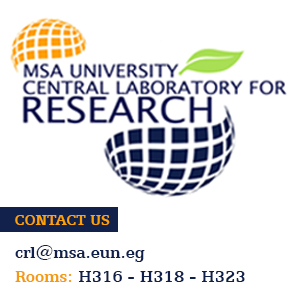Ethics Committee
1. About the Research Ethics Committee (REC):
The Research Ethics committee (REC) of the Faculty of Pharmacy was established in November 2010.
The Ethics committee ensures that the Faculty is following the ethical and safety measures in research. The REC is a member in the Egyptian Network of Research ethics committees (ENREC) and is registered in the US Office for human research protection (OHRP) as an active valid Institutional Review Board (IRB) with an IRB # 00010491. Additionally, the faculty has signed a collaboration protocol with Cairo University- Institutional Animal Care and Use Committee (CU-IACUC) to establish a framework for collaboration in the animal research ethics field.
For any inquiries, please consult the coordinator of the committee Ass.prof. Reham Wasfi in person (Room G009) or by email: This email address is being protected from spambots. You need JavaScript enabled to view it..
2. Mission:
The mission of the Ethics Committee (EC) is to provide a multidisciplinary forum for the analysis and discussion of ethical standards effecting patient care, professional education and community interests. This mission is fulfilled through the Committee's advisory, educational, policy development, and service functions. The EC was established to formalize and specify the faculty commitment to promotion of high ethical standards in all of its operations. The purpose of the EC is to cultivate a pluralistic exchange of ethical values and concerns and to critically analyze that discussion for opportunities to enhance the ethical integrity of the Institution. The EC, through its distinguished members, is charged with assisting both researchers and students in conducting their research and any other operations within a consistent ethical framework. The EC, through its distinguished members, is charged with assisting researchers and students in the integration of ethical values into practice, policy, relationships, and organizational activities.
3. The Main Reasons why Ethical Approval is required:
In order for research to result in benefit and minimize risk of harm, it must be conducted ethically. MSA review processes are intended to ensure this whilst remaining sensitive to the needs of researchers& students. The researcher will not be covered by the College's insurance if ethical approval was not obtained prior to commencement. This means that should a participant make a claim regarding the research, then the staff or student would be personally liable. It is generally accepted that funders, such as research councils will not provide financial support for research that does not have ethical approval. Many publishers will now no longer accept for publication results of research that was not ethically approved. As such, researchers may need to present evidence of ethical approval in order to publish their results to the wider research community. Participants have the right to know who has access to their data and what is being done with it. Changes to modern society have seen an increase in litigation as a means of solving disputes. If ethical approval has not been obtained, the individual researcher bears personal responsibility for any claim. The aim of ethical review is to protect participants. They are a valuable part of the research process and not merely a means of accessing data. However, ethical review also helps to protect the researcher. By obtaining ethical approval you are demonstrating that you have adhered to the accepted ethical standards of a genuine research study which could increase recruitment potential.
4. Accepted Ethical Standards:
The following principles and values should be followed in all research carried out in the faculty:
Integrity: Researchers must always be honest.
Respect for persons: Researchers must treat participants and research subjects with respect. Obtaining informed consent from participant is an important form of respecting persons.
Beneficence: Researchers should always think of maximizing possible benefits and minimizing possible harms.
Non-malfeasance: Researchers must make efforts to secure the well-being of participants. The health conditions of researchers (Pregnancy and allergy) should be taken into considerations.
Justice/Fairness: Researchers should not only consider the benefits of the individual or organization but rather they should consider the benefits for the wider community.
5. Other important documents (Arabic language version):
1- Intellectual property bylaw - download here
2- Intellectual property awareness booklet - download here
3- Ethical covenant for students and faculty members - download here




